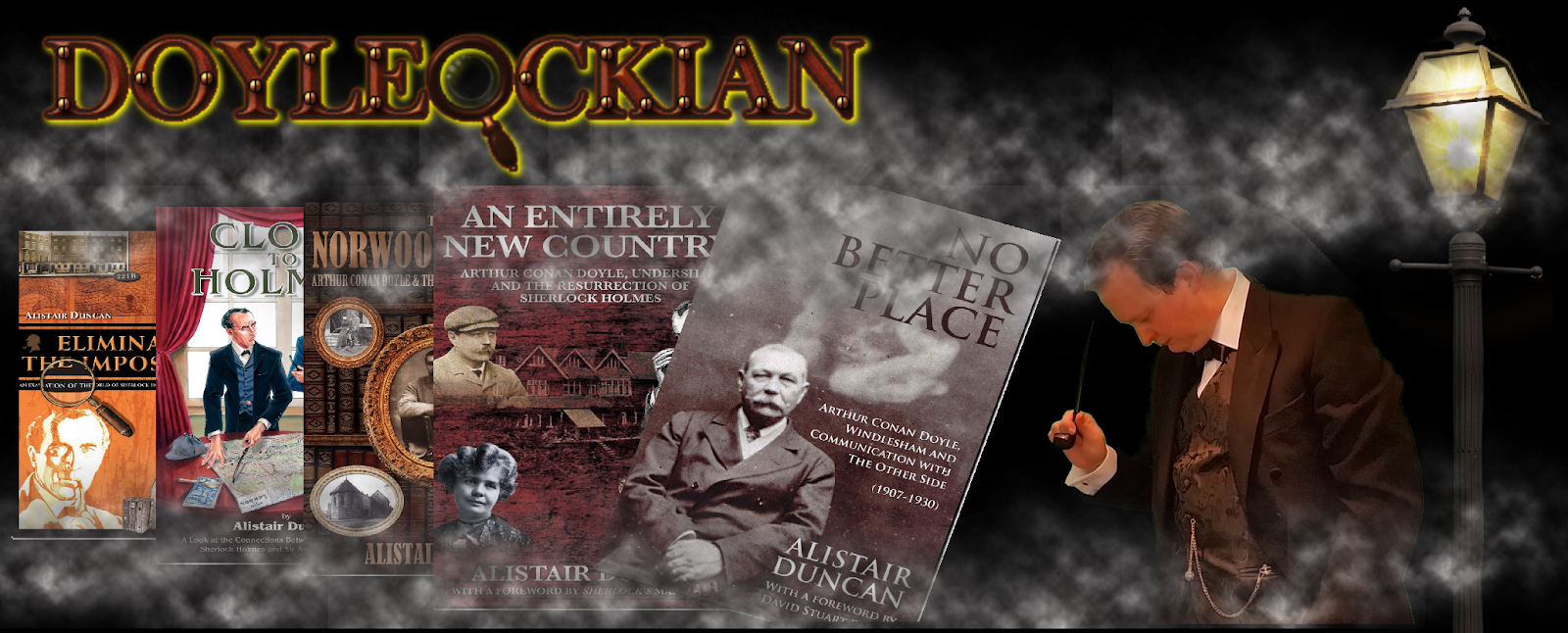Separating the wheat from the chaff
Back in 2013 I wrote about the issue of money versus longevity when it comes to Sherlockian writings.
My two posts (here and here) made the observation that there is more money and more competition in the fiction arena and less on both fronts in the non-fiction arena. Significantly, I also pointed out that the sheer level of output has created a "read and throw away" mentality.
Now you could argue that history is simply repeating itself, as the sheer volume of printed output in the late Victorian era created very much the same attitude to periodicals - which is why many early copies of The Strand and Beeton's Christmas Annual (1887) are rare and valuable.
This same fiscal fate is not likely to be the case for modern Sherlockian output (both fiction and non-fiction). While readers will still throw things away in much the same fashion as times past; the publishers will always have books in electronic form on a server somewhere ready to rush back into print if demand increases. In my experience, people don't have the same desire for first (or rare) editions of modern books in the way that they did (or, in my case, do) for the books of the past.
Perhaps it is a fondness for the past that, in part, encourages people to write Sherlockian homage or pastiche. There is comfort in the known and the established. As a writer you have less to do if the characters you are using are well known - a lot of the work has been done for you. The problem though is that writers who start with the familiar still often desire to break new ground and when you attempt that with established characters, of whom the reading public has certain expectations, you run the risk of creating chaff rather than wheat and thus causing disappointment. You must always remember that, for the vast majority of Sherlockians, it is the original article that hooked them and it is that which they seek - consciously or subconsciously. Each reader will accept a certain amount of variation but the more you veer away from the original the more you limit the number of readers who will make the journey with you.
As I believe I have said before, the pastiche/homage writer who sticks to the formula laid down by Conan Doyle and does it well, stands much more chance of writing a story that will endure.
 Written by Alistair Duncan
Buy my books here
Written by Alistair Duncan
Buy my books here
My two posts (here and here) made the observation that there is more money and more competition in the fiction arena and less on both fronts in the non-fiction arena. Significantly, I also pointed out that the sheer level of output has created a "read and throw away" mentality.
 |
| Too much to read! |
Now you could argue that history is simply repeating itself, as the sheer volume of printed output in the late Victorian era created very much the same attitude to periodicals - which is why many early copies of The Strand and Beeton's Christmas Annual (1887) are rare and valuable.
This same fiscal fate is not likely to be the case for modern Sherlockian output (both fiction and non-fiction). While readers will still throw things away in much the same fashion as times past; the publishers will always have books in electronic form on a server somewhere ready to rush back into print if demand increases. In my experience, people don't have the same desire for first (or rare) editions of modern books in the way that they did (or, in my case, do) for the books of the past.
Perhaps it is a fondness for the past that, in part, encourages people to write Sherlockian homage or pastiche. There is comfort in the known and the established. As a writer you have less to do if the characters you are using are well known - a lot of the work has been done for you. The problem though is that writers who start with the familiar still often desire to break new ground and when you attempt that with established characters, of whom the reading public has certain expectations, you run the risk of creating chaff rather than wheat and thus causing disappointment. You must always remember that, for the vast majority of Sherlockians, it is the original article that hooked them and it is that which they seek - consciously or subconsciously. Each reader will accept a certain amount of variation but the more you veer away from the original the more you limit the number of readers who will make the journey with you.
As I believe I have said before, the pastiche/homage writer who sticks to the formula laid down by Conan Doyle and does it well, stands much more chance of writing a story that will endure.
 Written by Alistair Duncan
Written by Alistair Duncan


I can sympathise with the young lady in your photograph, driven to distraction by the overwhelming and ever-increasing quantity of written material!
ReplyDelete